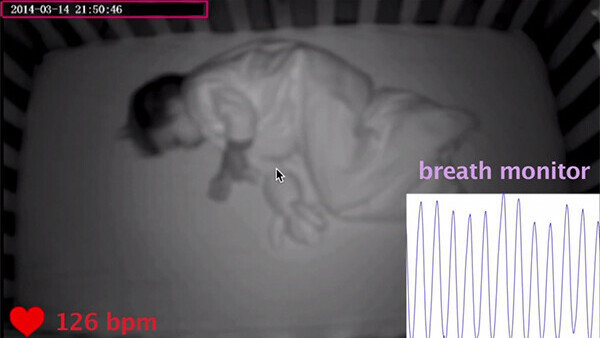
A new device that uses AI to monitor coronavirus symptoms is helping doctors treat patients beyond the reach of infection.
The box-like device emits wireless signals that bounce off human bodies before returning to the system. Algorithms then analyze changes in the signals to infer the person’s breathing rate, sleep patterns, and movements.
The system, named Emerald, was developed at MIT’s Computer Science and Artificial Intelligence Laboratory (CSAIL). The researchers initially envisioned using Emerald to detect and monitor chronic diseases, but the coronavirus outbreak has given it a new purpose.
Among the early users is the Heritage Assisted Living center in the Boston suburb of Framingham. Staff at the facility have installed the device in the room of a COVID-19 patient, where it monitors her health and sends the data to her doctor, who reviews the changes from home.
[Read: AI predicts where coronavirus cases will spike next]
The algorithms revealed a range of improvements in the patient’s vital signs. Her breathing rate had dropped closer to normal, her sleep quality had improved, and she was starting to walk more quickly around her apartment as her recovery progressed.
Medical distancing
Emerald aims to reduce the risks faced by healthcare professionals treating COVID-19, who are often exposed to the highly infectious disease without adequate protective gear.
It could play a particularly important role in assisted living centers and retirement homes, as the residents of these facilities are particularly vulnerable to the disease.
“It’s clear that, with these high-risk elderly patients, they would greatly benefit from us being able to passively gather medical data over time when it is not possible to interface with each person directly,” said William McGrory, who oversees mental health services for Heritage Assisted Living.
These issues have triggered a rapid expansion in the use of remote healthcare monitoring devices. And this transition to telemedicine is another legacy of the coronavirus that will outlast the pandemic.
Get the TNW newsletter
Get the most important tech news in your inbox each week.




